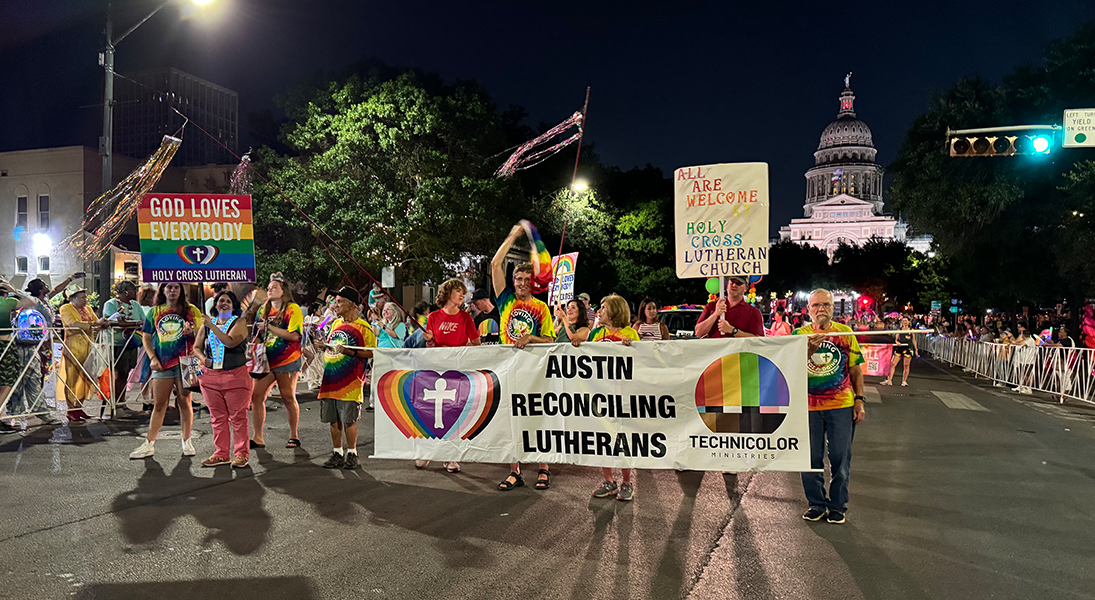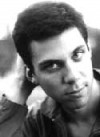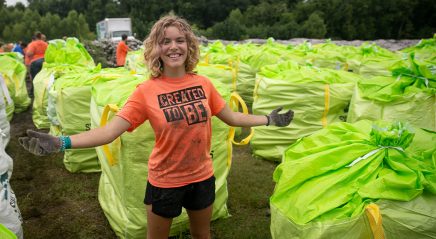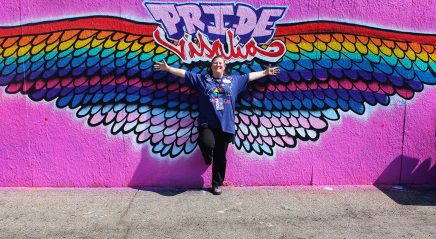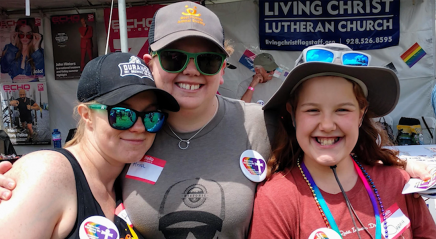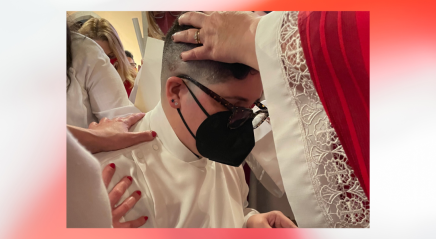Three years ago, when Sue. J. Briner, bishop of the Southwestern Texas Synod, tasked Keats Miles-Wallace to build a grassroots community for those who identify as LGBTQIA+, the pastor had a definite, immediate thought: “I was like, ‘That’s insane,’ I don’t know how to do that … but I’ll figure it out.”
So, Technicolor Ministries was born.
Today, after two years of almost weekly visits to most of the synod’s 130 congregations, and after organizing overnight campouts, including a worship time, there’s a good chance many in the synod have heard the pastor speak.
“There are many congregations in the area that are unwilling to talk about gender and sexuality,” Miles-Wallace said, adding there likely was at least one LGTBQIA+ person in the pews worshiping each time.
Before starting Technicolor, the pastor spoke to dozens of people around the country who work with similar ministries. One item frequently addressed was the concept of providing education around LGBTQIA+ issues and encouraging a more welcoming atmosphere.
“I was fortunate that being on the bishop’s staff gave me access to a lot of pastors very quickly,” Miles-Wallace said. “I said, ‘Hey, can I come preach or teach or do an ask-me-anything session, and just let people get their questions out?’”
Often, the talks have been met with stoicism from the pews. But Miles-Wallace said many people come for a one-on-one moment afterward.
“Two summers ago, I went to a church in Austin, and a grandmother was telling me about her grandchild who she fully supports and is very engaged with,” the pastor said. “She was just so grateful to have a connection in the church, one that she could provide that grandchild.”
Elizabeth Zimmerman, who was attending services in the synod, heard about Technicolor from friends and started following the group on social media. Then, Miles-Wallace spoke at her former home congregation, and it felt like a more accepting way to find a connection to her faith.
When she heard that Technicolor was going to host a camping event last year, she participated—even though she isn’t a camper and was unsure about the outdoor overnight gathering. But Zimmerman had a great time, exploring the area, eating camp food and sitting by a fire. In the morning, they worshiped together.
“It was meaningful in the sense of what Technicolor can do,” she said. “At that point I had just left my congregation, so it was nice to meet with other people who held the same values as me, because I had been two months without that. It was just a nice, refreshing time.”
“It’s incredibly necessary to affirm that absolute welcome and inclusion into God’s love, community and justice, and that it’s not questioned.”
Zimmerman said Technicolor creates space for everyone to be accepted for who they are.
Sharolyn Swenson saw that connection made for many people while serving as a transitional pastor throughout the synod. She would witness Miles-Wallace provide help as part of the synod’s talks with transitioning congregations as they explored diversity, equity and inclusion, and some people would specifically ask about Technicolor.
“It serves congregations that maybe don’t have a critical mass of voices particularly from the LGBTQIA+ community that want to get together and do things together,” said Swenson, who now serves as the director for evangelical mission and as assistant to the bishop for the Northern Great Lakes Synod. “It’s incredibly necessary to affirm that absolute welcome and inclusion into God’s love, community and justice, and that it’s not questioned. I think that having that formalized and articulated helps people not feel alone across the church.”
J. Mills is another ally of Technicolor. Miles-Wallace attended his ordination and the two have been friends since then. Mills said it’s important to support Technicolor in whatever way he can.
“Texas, as we know, is not a terribly safe or hospitable place for many people on the margins, and specifically our siblings of the LGBTQIA+ community,” Mills said. “I was ordained into a congregation that was Reconciling in Christ that was looking at building relationships as they were getting ready to close.”
That congregation, Lord of Life Lutheran, North Austin, Texas, chose to provide a $30,000 grant, which Miles-Wallace has used to facilitate the Technicolor camping events. Mills has attended them and found them faith-affirming for many participants.
“The intrinsic divinity of each individual person was the thing that was celebrated,” said Mills, who recently moved to serve Bethany Evangelical Lutheran Church, Ishpeming, Mich. “There was no necessity to have to argue your place. Just by virtue of you being there, active in the conversations, active in the activities, that was enough.”
While plans are in flux, Miles-Wallace continues to find ways to increase contact and further build community through Technicolor. The pastor said the need remains great.
“I don’t think anybody should have to sacrifice the inherent nature of who they are and who God created them to be to worship that very same God. That doesn’t make any sense,” Miles-Wallace said. “To offer people a place and space to engage their full and embodied self and experience in worship the God that created them, that seems like a no-brainer to me.”
For more information, see technicolorministries.com.



